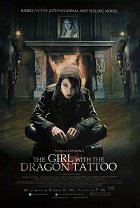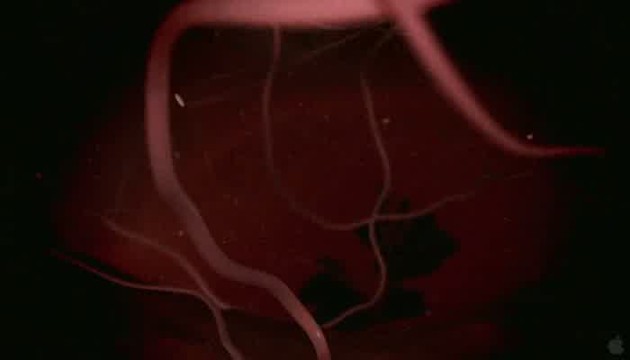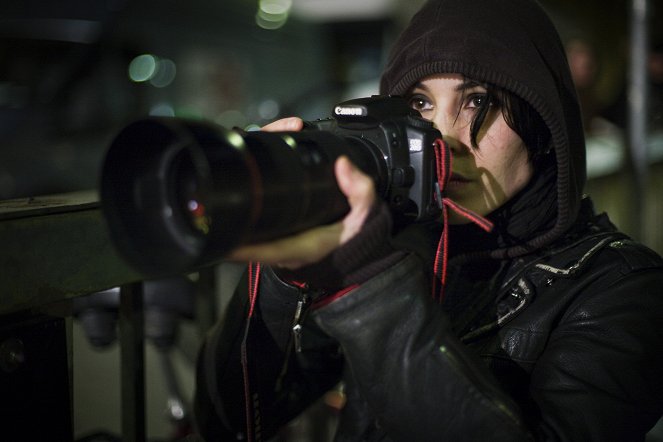Directed by:
Niels Arden OplevCinematography:
Eric KressComposer:
Jacob GrothCast:
Michael Nyqvist, Noomi Rapace, Lena Endre, Sven-Bertil Taube, Peter Haber, Peter Andersson, Marika Lagercrantz, Ingvar Hirdwall, Björn Granath, Ewa Fröling (more)VOD (1)
Plots(1)
Forty years ago, Harriet Vanger disappeared from a family gathering on the island owned and inhabited by the powerful Vanger clan. Her body was never found, yet her uncle is convinced it was murder and that the killer is a member of his own tightly knit but dysfunctional family. He employs disgraced financial journalist Mikael Blomkvist and the tattooed, ruthless computer hacker Lisbeth Salander to investigate. When the pair link Harriet’s disappearance to a number of grotesque murders from almost forty years ago, they begin to unravel a dark and appalling family history. But the Vanger's are a secretive clan, and Blomkvist and Salander are about to find out just how far they are prepared to go to protect themselves. (official distributor synopsis)
(more)Videos (2)
Reviews (9)
I can't resist comparing it to Fincher's version. The world of Millennium in Oplev's version is less flashy, but surprisingly enough, it's so inventive that many times the American version had no choice but to literally copy certain scenes along with the type casting (whether intentional or not). In this version, the intertwining of Blomkvist with the Harriet case is somewhat more logical, and the Vanger family tree is presented more clearly. Yet Blomkvist is less charismatic and his relationship with his wife seems to be non-existent. Lisbeth Salander is much more grown up and more mature overall. This form of Lisbeth is more in line with her new custodian, who is in many ways more disgusting and dangerous. Blomkvist's storyline lacks the cute relationship with the cat in the cabin on Hedestad Island, and Lisbeth doesn't give us much of her one-night lesbian romance. The Swedes are simply not as ethereal as the Americans, which is most evident in the character of Martin (Stellan is Swedish). One of the major changes is the guide to biblical references. The way in which the rapprochement between Lisbeth and Blomkvist comes about is different only in the delicate details, which is nice. However, the meeting with the Vanger family in the hospital, which is smooth in Fincher’s version, has been replaced here by dry Machiavellian babble. The Swedish film is also much less tolerant of Nazism, lacking the figure of the archivist, but the key catharsis associated with Lisbeth's past is considerably more raw and realistic. Contrastingly, the Australian chapter feels otherworldly, just as Lisbeth's loading of the property at the end fits somewhat less into the big picture. So what about the point? In the Swedish film, the last shot is of a man in love (!), while in the American one, the new-age heroine is struggling with a broken heart. Hmm....
()
I've read the book as well as seen the film and I'm happy with both. A perfect example of how to make a crime thriller with a grim, dark atmosphere and very little frantic action. The choice of the two leads was atypical, Lisbeth wasn't just unpleasant but unpleasant to look at, Mikael Blomkvist was a middle-aged man with fat rather than muscle, but it worked surprisingly well. This uncontrived look gave the film a much more down-to-earth and realistic vibe. It just goes to show the difference between European and American filmmaking. Instead of melodrama, you’ll get a good dose of chilling atmosphere. I can't go below five stars.
()
It was clear to me that the movie could never fit in everything from the book, but the book still took a beating more than I would have expected. Perhaps the only change for the better was that Blomkvist looked for Harriet because he remembered her from his childhood. Otherwise, I was and still am quite at a loss. Everything seemed too rushed to me, even the oft-mentioned rape (and revenge), the script just had pieces of lot of things just to have them appear in the film and then move away from them immediately... It barely had any atmosphere, dammit! The book stands and falls with Lisbeth Salander's character, and I was initially happy to see Noomi Rapace play her. In the end, though, it didn't seem very appropriate - she simply wasn’t weird enough. In this respect I'm pretty much betting on Rooney Mara from the American remake, who looks much more unusual from the photos. I'm giving it two and a half stars, mainly because after an hour I was thinking "Well, if I fell asleep now, nothing would actually happen". And that's not a good sign.
()
The whole trilogy is more or less about a girl who makes no compromises. Never and nowhere. And about a journalist who also makes no compromises in his professional life, unlike in his personal life. Never and nowhere. The whole trilogy is a feet-up watch which won’t make you want to put your feet up even a long time after reading it. And it’s adapted in a movie that makes compromises everywhere and in everything and it’s no problem to take a quick nap during it. Although part one is certainly the most difficult to adapt of the entire trilogy, the number of storylines being murderous. Oplev fails in not being able to decide whether to cut back the wealth of material in the book, just leaving the thrilleroid element or not. It would have been a shame, but it’s nigh on impossible to transfer what’s “extra" onto the screen. Where it flounders is that it includes a little of everything, but everything is just touched upon and nothing is investigated in depth, so it all just fizzles out. Which is a shame because those “post-Lingren" characters are crying out for a quality adaptation. But what is almost unbelievable is the casting of Lisbeth; I couldn’t believe it would be possible to cast her so that she both looks the part and can act too. Too bad the same can’t be said of Blomkvist. P.S.: I saw the movie before reading the book and even after doing so the overall impression was basically identical in both cases.
()
The majority of dissatisfaction in the reviews is caused by the usual comparison with the book and ends with the usual lamentation that certain characters, motifs, or elements are missing or do not get space in the film (logically). I was not affected by this problem because, since the birth of my children, I have dramatically less time, and the time that remains, I dedicate to the film world. So best-selling books like "Millenium" regularly reach me only through film. The Girl with the Dragon Tattoo can be jokingly referred to as the European version of dark thrillers like The Silence of the Lambs. The search for a long-lost girl from a wealthy business family gradually turns into a pursuit of the demons of the past and culminates in the revelation of the culprits behind a long series of brutal murders of young women. It differs from routine Hollywood blockbusters in its slower pace, and certain moderation (I can imagine a disproportionately more action-packed, bloodier, and overall more effective version of the same). The Swedish film deliberately avoids big names and familiar faces, which European cinema could easily provide without any problems. The unfamiliar actors, however, act exceptionally well and score points alongside excellent camera work, which, together with the great unsettling soundtrack, creates a gloomy atmosphere of a world where you can expect a strike from anyone rather than kindness and friendship. Thanks to its hardness, the Swedish language also plays a significant role - it is better to choose to watch the subtitled original. However, the foundation of the film's success is a well-crafted quality script and, above all, the characters, where the contrasting duo is formed by the stubborn yet reliable and personally conservative investigative journalist Blomkvist. His more action-oriented and rebellious counterpart is the punk hacker Lisbeth, who enjoys investigating crimes she did not commit. Her character constantly teeters on the edge, whether it is her actions or her abilities, and she is a character who seems to have emerged from the pages of a comic book into the story. Thanks to her unconventional upbringing by her father and sexual lessons from her guardian, she does not trust men and experiments with lesbian relationships. Noomi Rapace, an Icelander, portrayed her convincingly and gave her an interesting and attractive appearance, but Lisbeth is already so inherently "cool" that I have some problems with accepting her, and if the film pushed a little harder, her credibility would be completely lost. Thanks to its professionalism, the film can be considered a quality challenge to the current American dominance in this commercial field. It is not exclusive and detached art, but a smart, suspenseful midcult film for a wide range of moviegoers. Overall impression: 80%.
()



Ads